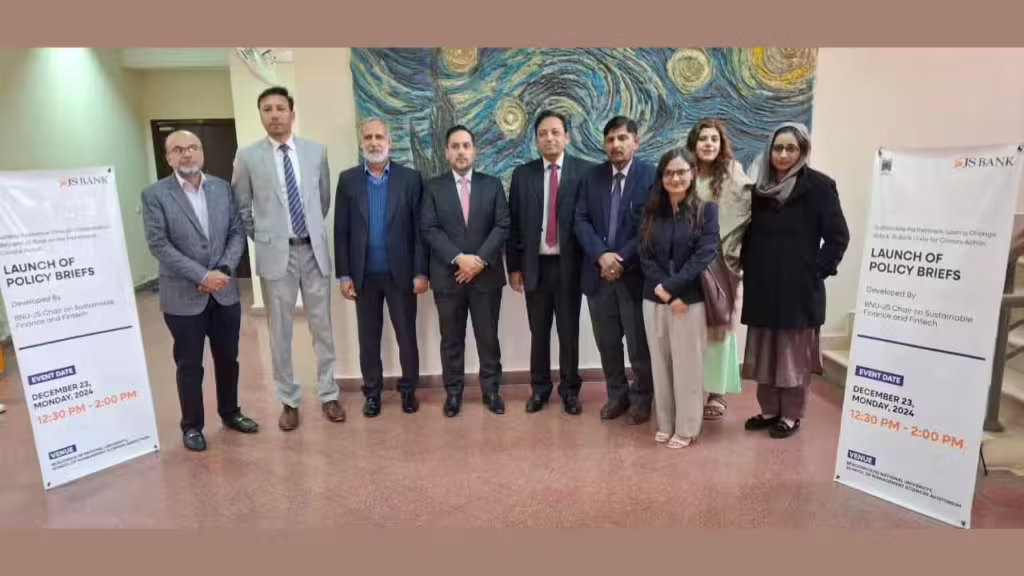Islamabad, Dec 27: The JS Chair for Sustainable Finance and Fintech at Beaconhouse National University (BNU) hosted the launch of its Policy Briefs, focusing on sustainability, climate finance, and the role of BNU students in addressing climate-related challenges. The event, held in collaboration with JS Bank, emphasized BNU’s commitment to becoming a green institution and fostering meaningful partnerships between students and the financial sector in driving sustainability efforts.
The event featured key speeches, including one by Dr. Moueed Yusuf, Vice Chancellor of BNU, who outlined the university’s ongoing efforts to integrate sustainability into its academic programs. He emphasized the importance of equipping students to actively participate in climate finance initiatives.
Dr. Jamshed Ali, Assistant Professor and JS Bank Chair for Sustainable Finance and Fintech at BNU, introduced the Climate Policy Briefs, highlighting the significant gap in climate finance and the urgent need for Pakistan to boost its climate financing to meet international climate goals.
A key discussion point at the event was the global investment in climate finance, which has reached $1,550 billion from both public and private sectors. However, a glaring 80% gap in climate financing remains between developed and developing countries. Dr. Jamshed noted that Pakistan must increase its climate finance efforts by up to eight times to meet its climate targets.
The session also delved into the growth of Green Bonds, which have now reached a global value of $3 trillion, and the rising importance of Sustainability-Linked Bonds in supporting sustainable projects. Mr. Syed Jafar Raza, Group Head Investments at JS Bank, emphasized that tackling climate change requires collective action from both public and private sectors, stressing that no single entity can address this challenge alone.
Dr. Hafiz Pasha, Professor Emeritus at the School of Management Sciences, discussed Pakistan’s vulnerability to climate change and underscored the need for a five-year climate adaptation and mitigation plan. He also highlighted the importance of developing inclusive financial structures and leveraging fiscal tools to encourage investment in green and sustainable initiatives.
The JS Bank Chair for Sustainable Finance and Fintech, a collaboration with Zindigi, has made notable progress in promoting research, policy advocacy, and education in sustainable finance. Key initiatives include the completion of policy briefs on Green Bonds and Sustainability-Linked Bonds, seminars on sustainable finance, and the introduction of a sustainable finance course scheduled for the Spring 2024 semester.
This event marks a significant step in advancing sustainable finance in Pakistan, with a clear focus on cultivating environmentally conscious leadership and promoting climate-friendly solutions within the financial sector.
